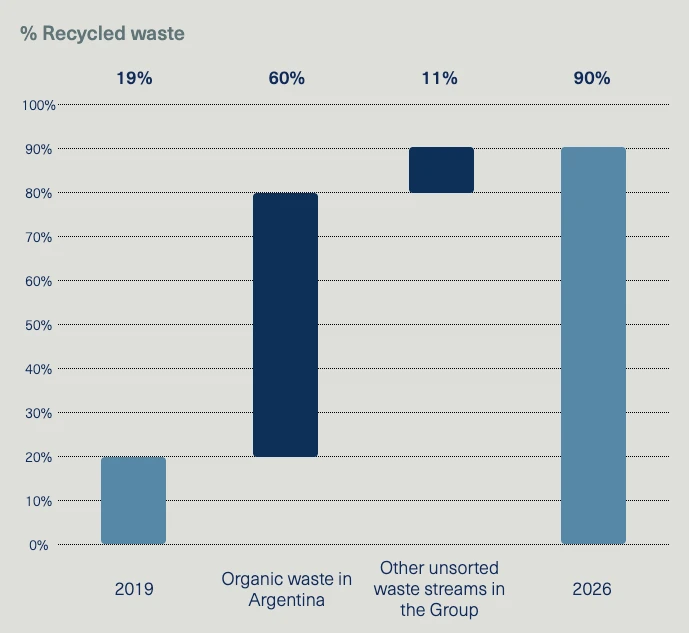Recycled Waste
What are we aiming for
Going forward, we want to do even better regarding registering and recycling waste, while keeping in mind that we operate in different countries, with various waste legislations and recycling methods. Our ambition is to reduce the amount of waste as much as possible. Waste that cannot be eliminated shall be reused or recycled.
Why is it important
The linear economy is predominant in today's global economic landscape, with only about 7,2% belonging to the circular economy. The main issue with the linear economy is its tendency towards wasting valuable materials, a significant problem on a planet with finite resources. The linear economy also results in higher greenhouse gas emissions generated from the manufacture of products and waste handling, a significant problem on a planet battling climate change, causing ocean acidification and extreme weather events.
How will we do it
The circular economy aims to minimise waste and promote the sustainable use of natural resources. In a circular economy, products are either recycled, remanufactured or re-used after they have served their initial purpose. We have kept the principles of circular economy in mind as we prioritised our strategies to reduce the amount of waste generated at our sites.
1. Continued improvements in the processing of seafood.
2. Purchase wisely other goods.
3. Awareness training for staff on different streams and what can be recycled.
4. Seek every opportunity to find recycling streams for the waste that is generated on-site.
5. Increased cooperation with our service partners in waste handling.
Most of the non-recycled waste from our operations is organic waste from shrimp processing in Achernar, which is located in Argentina. We, therefore, place special emphasis on finding ways to reuse the organic waste and upcycle it. A project to improve this has already been started.

